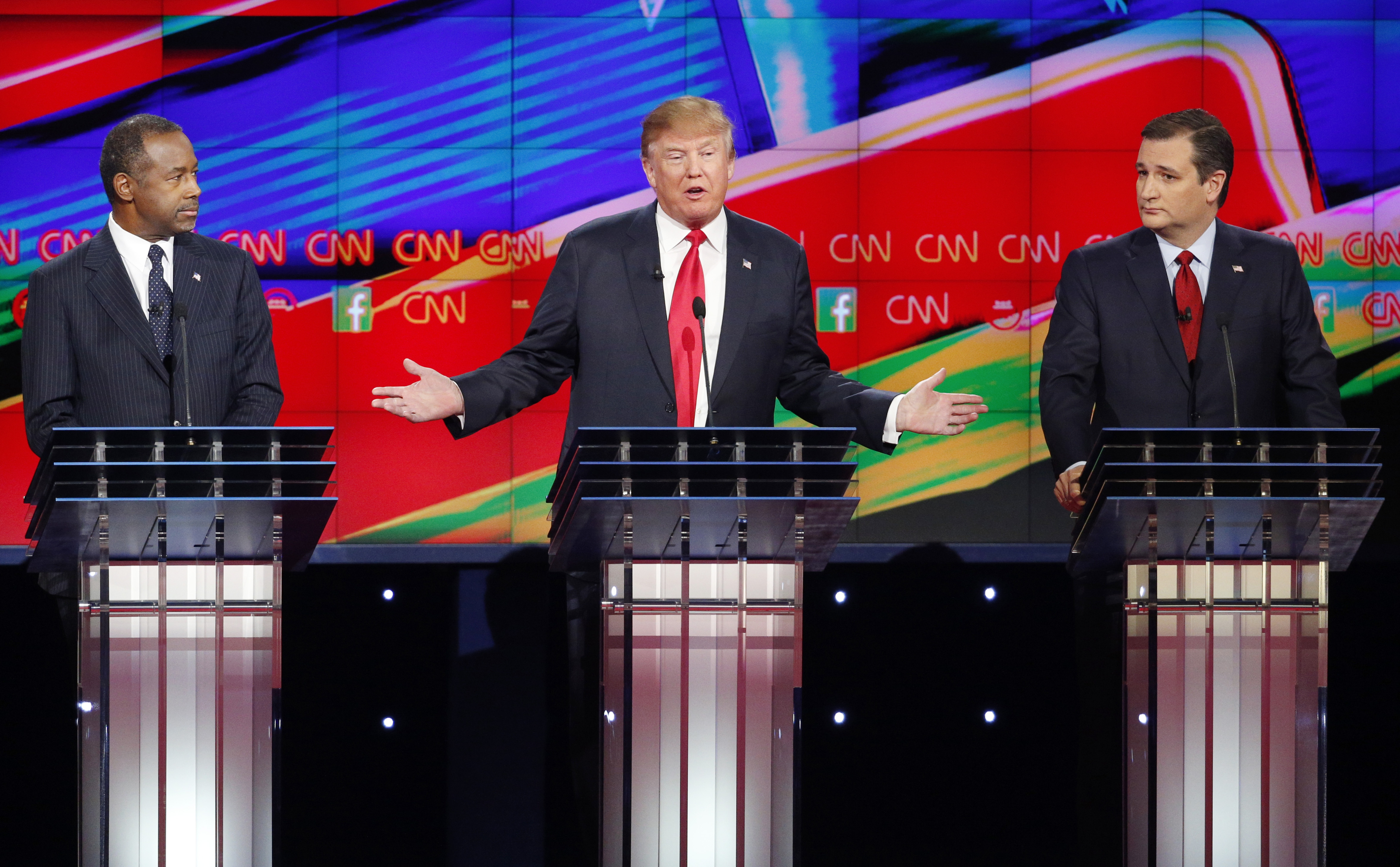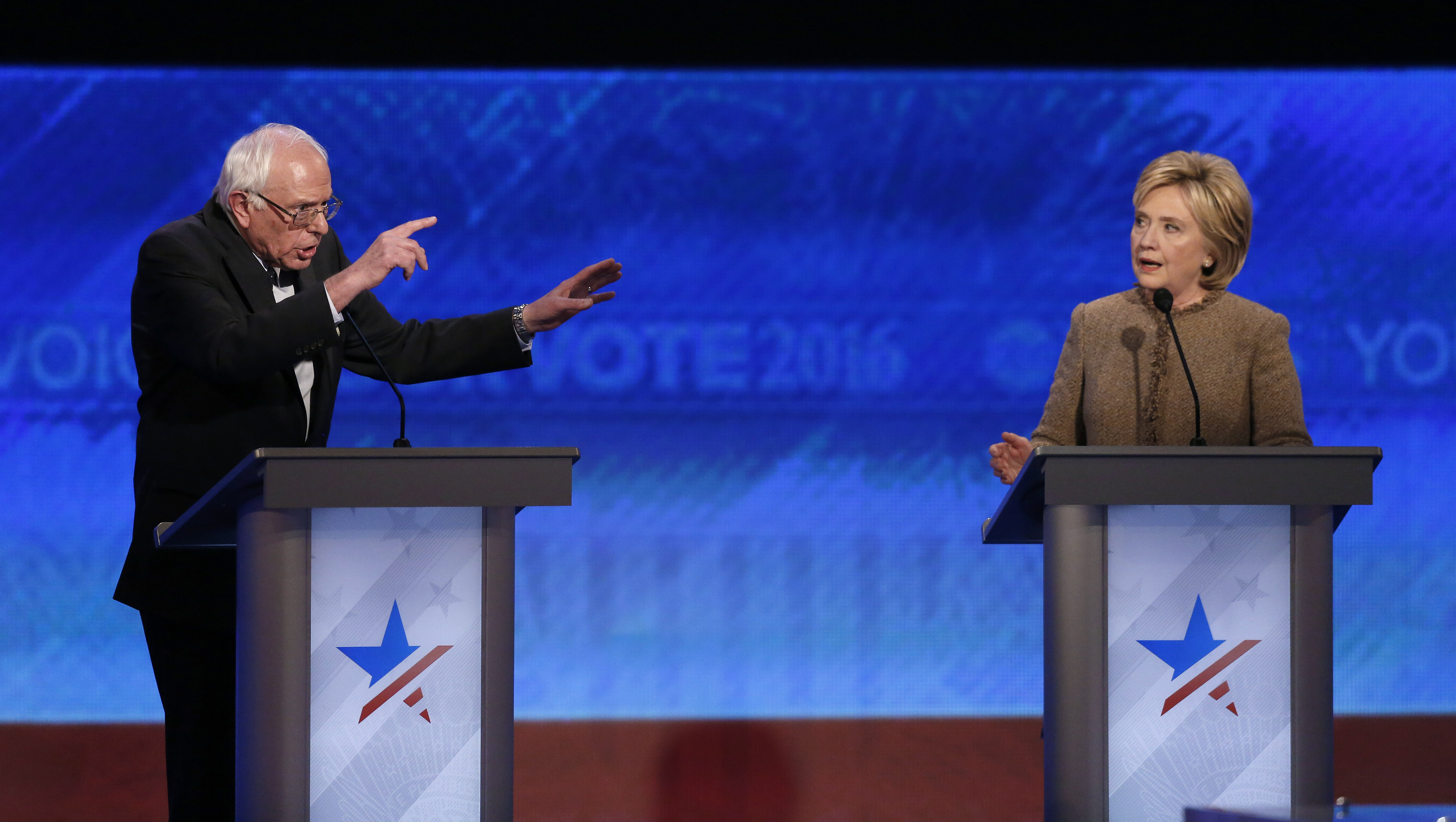NASHVILLE - With Tennessee's presidential preference primary getting more national notice than it has in decades, the state's 1973 "sore loser law" has also gained a bit of attention, with conflicting opinions on how the law should be interpreted if a candidate decides to run as an independent in November.
Tennessee's "sore loser law" says a candidate who loses in a party primary election is prohibited from running later in the same election year as an independent or as the nominee of another party.
Most recently on the national front, the online political news magazine Politico last week carried a story under the headline, "Why Tennessee will matter in 2016."
"It's not quite Iowa, but Tennessee - a state long ignored until much later in the cycle, and then often just turned to for donations - is now one of the biggest hubs for GOP political activity in the country," declared the Politico report.
That's in accord with the hopes expressed by state legislators when they voted almost unanimously in 2011 - after consulting with Republican and Democratic party officials - to move the primary date to March 1, a week earlier than in 2012 but somewhat later than the Feb. 5 primary in 2008. The dates have varied considerably since the first Tennessee presidential primary on May 4, 1972. Before that, Tennessee's delegates were chosen in party caucuses.
Tennessee will send 58 delegates to the 2016 Republican National Convention, fewer than Texas or Georgia but more than any of the other Southern states participating in what is being dubbed "the SEC primary" on March 1. From the candidates' perspective, the state's geographic situation and media markets naturally make it an obvious choice as a focus for campaign advertising and media attention.
Explains Politico: "An ad buy in Knoxville, in the eastern part of the state, can also hit corners of Virginia, North Carolina and Kentucky.
"Getting television coverage in Chattanooga, in the southeastern corner, plays in Georgia and Alabama, while a Memphis presence also gives a candidate audiences in Arkansas, Mississippi and Missouri. These Tennessee cities are smaller than, say, Atlanta - and in the cases of Knoxville and Memphis, smaller than a number of other midsize Southern cities - generally meaning that it costs less to buy a spot, and with the bleed-over into other states, it's more cost-effective.
"The extensive airtime candidates receive here, coupled with a primary calendar change, a solid donor pool and the ideological diversity of the GOP in Tennessee explain why both deeply conservative candidates like Cruz and politicians like Rubio who appeal to more mainstream Republicans see a path and are investing significant time and effort into a state that in previous cycles was largely ignored."
The upshot is that Tennesseans can expect to be saturated with TV campaign commercials starting in mid-February, if not sooner.
The Politico article says Texas Sen. Ted Cruz, Florida Sen. Marco Rubio and billionaire businessman Donald Trump appear to have the most momentum in Tennessee so far - an assessment several GOP officials share, as indicated in interviews. All three men have active campaigns within the Volunteer State and have made several visits. A Vanderbilt University poll last month put Trump out front in Tennessee with support of 29 percent of prospective Republican voters.
Secretary of State Tre Hargett, who oversees the election process in Tennessee, has certified 14 candidates for listing on the state's Republican presidential primary ballot and three on the Democratic side.
On the Democratic side, Hillary Clinton is widely perceived as an overwhelming front-runner, nationally and in Tennessee. Insofar as national media is concerned, Tennessee has thus received virtually no attention - although Clinton, Vermont Sen. Bernie Sanders and former Maryland Gov. Martin O'Malley all have active supporters in the state.
Things are different in the intensely competitive Republican campaigning.
Former Arkansas Gov. Mike Huckabee, who is on the ballot again this year, was the Tennessee GOP front-runner in 2008 with 190,904 votes. Former Pennsylvania Sen. Rick Santorum, also a candidate again this year, was front-runner in Tennessee's 2012 Republican presidential primary. In both those years, the Tennessee outcome proved irrelevant to the national nominating process, with John McCain becoming the nominee in 2008 and Mitt Romney in 2012.
Trump and neurosurgeon Dr. Ben Carson, who was runner-up to Trump in the Vanderbilt poll, at different times raised the possibility of running as independent candidates if they fail to gain the Republican presidential nomination - although both have subsequently declared they have no intention of doing so and will support the party nominee.
Hargett interprets the state's "sore loser law" to apply to presidential candidates well as those in other races, as he initially told Nashville's public radio station, WPLN. That would mean Trump, Carson or any other candidate listed on Tennessee's March 1 ballot could not be listed on the November general election ballot in Tennessee should he or she mount an independent campaign.
"Anybody that's on the ballot will not be eligible to run under any other banner," Hargett said.
But Richard Winger, editor of the California-based Ballot Access News, disputes that proposition. In an email he noted that John Anderson was on the 1980 ballot as an independent even though he had run in the Tennessee Republican presidential primary. Winger also said Secretary of State Tre Hargett let Gary Johnson on the 2012 ballot as an independent even though he had competed in the GOP primary.
Hargett spokesman Adam Ghassemi said the secretary of state stands by his interpretation. The 2012 situation, he said, was "an anomaly" created by the lawsuit on third-party ballot access that was pending at the time.
"Our elections officials made that decision [to let Johnson's name appear on the November ballot] out of an abundance of caution. Failing to do so may have resulted in reproducing the ballot at taxpayers' expense while strict deadlines for the presidential election were imminent," Ghassemi said in an email.
But Ghassemi could not address the Anderson 1980 case cited by Winger. Gentry Crowell, now dead, was secretary of state and overseer of the election process at the time.
Riley Darnell, a Democrat and former state legislator who was secretary of state before Hargett and now is a lobbyist, said he believes Hargett's interpretation is correct. But former Knoxville Mayor Victor Ashe, who as a state legislator in the early 1970s, co-sponsored legislation creating the Tennessee presidential primary, said he thinks Hargett's position is a "misinterpretation" of the law.
Ashe, who is seeking election as a Rubio delegate in the March 1 voting, said he does not recall circumstances leading to passage of the "sore loser law," but that as a state statute it should not apply to elections for federal office.
Tom Humphrey is a retired News Sentinel Nashville bureau chief who blogs about Tennessee politics.

